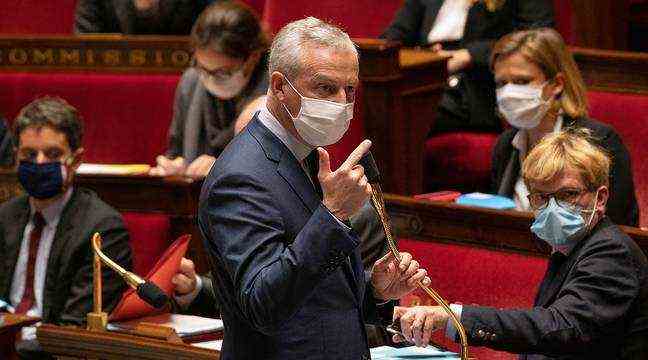Priority “at the heart of the State’s missions”. The government wants to focus spending increases on the regal in 2022. Although the presidential “whatever the cost” must gradually be phased out by the end of the year, after more than a year of epidemic, the ministries will see their envelopes swell by nearly 10.8 billion euros next year, announced the Minister of the Economy, Bruno Le Maire, by opening the debate on the orientation of public finances on Thursday at the ‘ National Assembly. This is as much as the increase already recorded in 2021.
“We have privileged (…) the armies, justice, police, education and research”, underlined the minister, with nine months of the presidential election. His colleague from the Public Accounts, Olivier Dussopt, however conceded that the arbitrations were “difficult to make”: 2022 will be “both a year of continued recovery”, “reforms” and a “year which will mark the return to the normalization of public expenditure ”.
The most endowed ministries of defense and education
On the right, the chairman of the Finance committee, Eric Woerth (LR), denounced a “slippage” and a “renunciation”. In the end, “half of these new expenditures are the result of programming laws, and therefore laws of investment in the sovereign activities of the State”, replied Bruno Le Maire.
The Defense budget and that of Education will both increase by 1.7 billion euros next year, to finance in particular the salary increases for teachers. The research and higher education budget will increase by 900 million euros; that devoted to security missions, of 800 million euros; and that of justice, 700 million euros. Conversely, the budgets of most of the other ministries will stabilize next year.
Continuation of the recovery plan
The other half of the increase in spending will be devoted to “support” in the face of the crisis, for example for loans guaranteed by the State, “emergency accommodation, or the extension of the university ticket to one euro”, Bruno Le Maire said again. To this will be added the continuation of the recovery plan, with in particular two billion euros additional earmarked for the housing renovation bonus, and the financing of the measures announced Monday evening by Emmanuel Macron, such as the commitment income for young people or the new investment plan.
In total, public spending should grow another 1.5% next year, a little more than what the executive envisaged in the spring in its stability program transmitted to Brussels. The state workforce will remain stable over the entire five-year term, confirmed Olivier Dussopt, far from the target of reducing 50,000 civil servants at the start of the five-year term, already abandoned in 2019.
“Neoliberal ideology”
The reform of unemployment insurance should make it possible to lighten spending a little, as should the overhaul of the State’s purchasing policy. On the left, Communist MP Karine Lebon and rebellious Sabine Rubin criticized the government for its “neoliberal ideology”, targeting the reform of unemployment insurance. Socialist Valérie Rabault called for a “readable” investment plan after the “catch-all” of the recovery plan.
In the majority, the budget rapporteur, Laurent Saint-Martin (LREM), presented 2022 as a “pivotal year” to “mark the end of” whatever it costs “” and “prepare” in the “medium term” control of public spending, with the objective of reducing the debt ratio by 2027.

